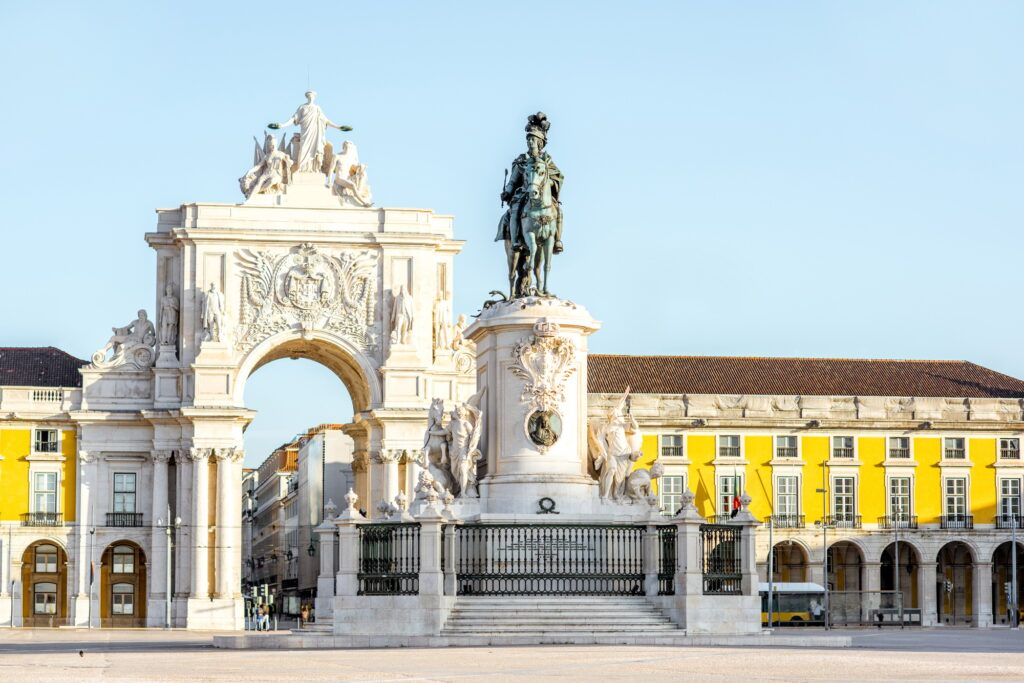Key Takeaways:
- Portugal aims to streamline work visa processing to 20 days but faces overwhelming application backlogs.
- Consulates, particularly in Brazil, struggle with resources, causing delays of over six months.
- Recent immigration policy changes and unresolved “golden visa” applications exacerbate the issue.
Portugal, celebrated for its vibrant culture and welcoming environment, has increasingly become a magnet for skilled workers and investors seeking new opportunities. In a move to strengthen its appeal and improve its immigration processes, the Portuguese government announced ambitious plans to cut the processing time for work visas and residence permits to just 20 days. However, this ambitious goal now stands on shaky ground due to persistent backlogs and bureaucratic hurdles.
Challenges at Consulates
Portuguese consulates, especially in Brazil, are bearing the brunt of an unprecedented influx of applications. Reports indicate that applicants often wait over six months for their visas, resulting in job offers being rescinded and applicants experiencing financial strain. Immigration lawyer Priscila Corrêa highlights that consulates are under-resourced to handle the mounting demand, describing the situation as one where “visas are stuck, some for more than six months.”
These delays are more than administrative inconveniences—they have real human and economic impacts. Applicants lose career opportunities, while companies eager to onboard international talent face disruptions. Additionally, the inefficiency tarnishes Portugal’s reputation as a country that supports global mobility.
Policy Shifts Adding to the Burden
Compounding the issue are changes in Portugal’s immigration policies. In June 2024, the government repealed the “expression of interest” system, which had previously allowed foreigners without a job offer to secure residency after contributing to social security for a year. This shift means that migrants now need an employment contract before arriving in Portugal. While intended to streamline processes, experts suggest this requirement could overload consulates further, as they manage both employment verification and visa applications.
Golden Visa Delays and Investor Discontent
Portugal’s once-celebrated “golden visa” program, which offers residency to significant investors, is also entangled in delays. Some investors have waited over four years for approval, prompting legal action against the Agency for Integration, Migration, and Asylum (AIMA). By May 2024, courts were handling roughly 7,500 lawsuits related to golden visa processing delays. This backlog not only frustrates investors but also jeopardizes Portugal’s ability to attract high-net-worth individuals.
Efforts to Address the Crisis
The government has recognized the urgency of the situation and initiated several measures, including expanding consular staff and modernizing the visa application platform. Despite these efforts, AIMA estimates that clearing the 350,000-application backlog will take approximately 18 months. This timeline raises serious doubts about achieving the 20-day processing goal anytime soon.
Broader Implications for Portugal
The delays and policy complications paint a complex picture of Portugal’s immigration landscape. On one hand, the country aspires to be a global hub for talent and investment; on the other, its administrative capacity is struggling to keep pace. These challenges could deter skilled workers and investors, forcing them to consider alternative destinations with more efficient immigration systems.
In my opinion, Portugal’s efforts to revamp its immigration policies are a step in the right direction, but the execution falls short of expectations. Without substantial investment in consular resources and structural reforms, the plans to expedite visa processing may remain unfulfilled promises. The country’s ability to balance its appeal as a destination and manage the practicalities of immigration will ultimately determine its success in attracting global talent and investment.
Looking Ahead
The path forward for Portugal’s immigration system requires bold action. Increasing the number of consular staff, implementing advanced digital tools for application management, and fostering transparency in processing times will be critical. These measures, coupled with a review of current policies, could restore faith in Portugal’s immigration system and align it with the aspirations of professionals and investors worldwide.
#
Source










